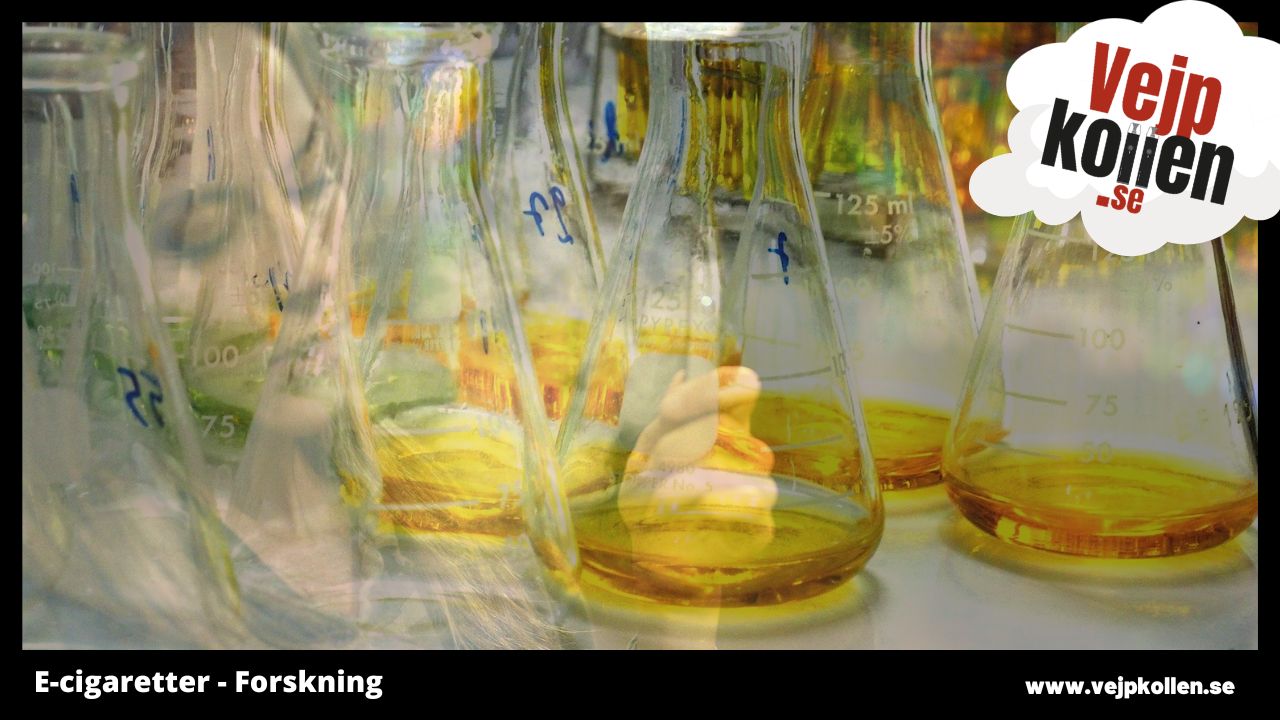A number of new chemicals sometimes used as alternatives in e-cigarettes, such as 6-methyl nicotine or 'Metatine', can be both more potent and addictive than traditional nicotine.
At least that's what the US Food and Drug Administration (FDA) says.
But in the shadow of tightening nicotine legislation, 'Metatine' is now starting to make its way onto the US market.
The US Food and Drug Administration (FDA) is now warning about different types of synthetic alternatives to nicotine coming onto the market. It reports nReuters news agency. Nicotine analogues produced in a laboratory have properties similar to nicotine, but with the major difference that they are not regulated under US tobacco and e-cigarette legislation. This has raised concerns about potential health risks and lack of oversight. Both tobacco companies and authorities now warn that the substances are widely used to circumvent existing laws. This in turn challenges the regulated market.
Urged by the tobacco industry
Although not currently regulated, the agency is now looking at the effects of nicotine analogues. One of the reasons for this is that Altria, the manufacturer of Marlboro cigarettes but also the e-cigarette brand Njoy, highlighted 6-methyl nicotine in a letter to the FDA as a substance to be particularly monitored. They urged the agency to investigate the potential health risks and review its powers to regulate these chemicals. Altria currently owns a majority of the few e-cigarette brands (three in total) which has been officially authorised for sale in the US.
Worried about more addiction
The FDA has not yet officially commented on its response to Altria, but in a statement to Reuters, the agency highlighted that early research suggests that synthetic nicotine analogues may be either more or less potent than regular nicotine. The agency is particularly concerned about how such substances may affect adolescents, as nicotine is already known to be highly addictive and, according to the agency, can affect brain development during adolescence.
Alternatives and the environment
The other side of the coin highlighted by proponents of synthetic nicotine is the environment. Tobacco cultivation has a strong negative impact on the environment and causes high emissions. According to research from Imperial Collage London In the UK, the tobacco industry emits 84 million tonnes of carbon dioxide (CO2) annually. Of these 84 million tonnes, 20.9 million tonnes are from the growing process itself and a further 44.6 million tonnes of CO2 from the subsequent drying and curing process.
Synthetic nicotine a carousel
The carousel of traditional and synthetic nicotine in the US has has been ongoing for several years By then, the FDA had begun to use its authority to regulate tobacco-free nicotine products as 'tobacco products', based on the logic that the nicotine had, after all, originated in the tobacco plant. Some e-juice manufacturers then replaced the nicotine in the e-liquid with synthetic nicotine, produced in a lab and unrelated to tobacco. This in turn led to the FDA shortly afterwards ksigns of expanding competences to include synthetic nicotine, even if it did not technically come from the tobacco plant. Therefore, at this stage, it does not matter whether the nicotine is synthetic or not.
Not included in the legislation
However, nicotine analogues are not included in this definition of nicotine, as they are a completely different chemical. Products containing 6-methyl nicotine often refer to the ingredient as 'Metatine'. This is a trademarked name for the same chemical patented by a Chinese e-cigarette company, according to a study published in National Library of Medicine.
Limited research and potential health risks
Despite the FDA's concerns, research on nicotine analogues is still limited. Several academic researchers have pointed out that the studies conducted so far do not provide sufficient answers about the long-term health effects or how addictive the substance really is, Reuters reports. Some studies, such as one conducted by Professor Imad Damaj of Virginia Commonwealth University, clarify that 6-methyl nicotine may be more potent than regular nicotine, but state that more, extensive testing is needed to determine its impact on humans.




